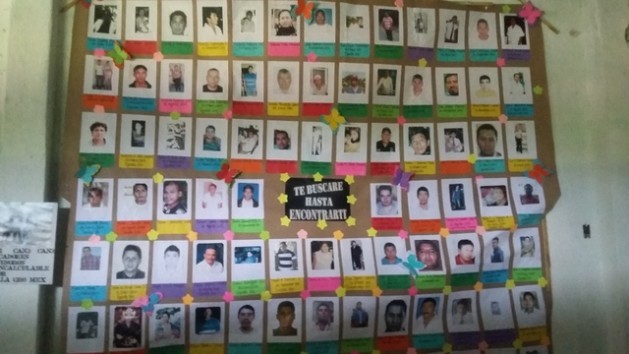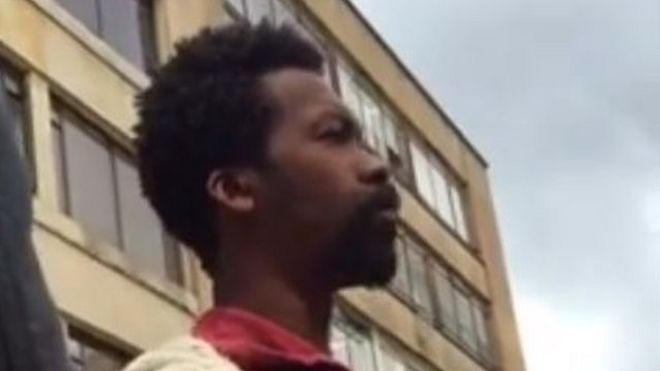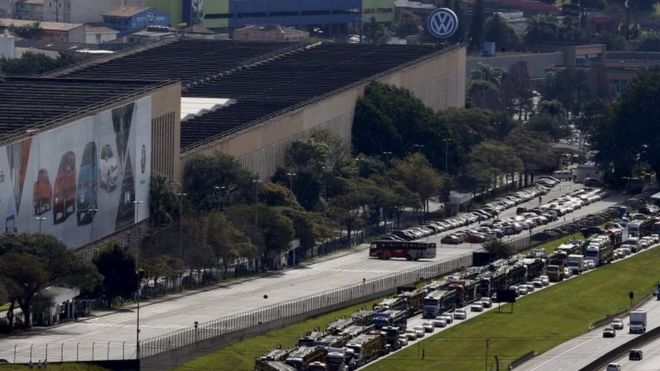Judi Lynn
Judi Lynn's JournalThe Latin America WikiLeaks Files
The Latin America WikiLeaks Files
US diplomatic cables reveal a coordinated assault against Latin America’s left-wing governments.
by Alexander Main & Dan Beeton
Earlier this summer, the world watched Greece try to resist a disastrous neoliberal diktat and get a painful thrashing in the process. When Greece’s left government decided to hold a national referendum on the troika-imposed austerity program, the European Central Bank retaliated by restricting liquidity for Greek banks. This triggered a prolonged bank closure and plunged Greece further into recession. Though Greek voters ended up massively rejecting austerity, Germany and the European creditor cartel were able to subvert democracy and get exactly what they wanted: complete submission to their neoliberal agenda.
In the last decade and a half, a similar fight against neoliberalism has been waged across the breadth of an entire continent, and mostly outside of the public eye. Although Washington initially sought to quash all dissent, often employing even fiercer tactics than those used against Greece, Latin America’s resistance to the neoliberal agenda has in large part been successful. It’s an epic tale that’s gradually coming to light thanks to continued exploration of the massive trove of US diplomatic cables released by WikiLeaks.
Neoliberalism was firmly implanted in Latin America long before Germany and the eurozone authorities began force-feeding structural adjustment to Greece and other indebted, peripheral countries. Through coercion (e.g., conditions attached to IMF loans) and indoctrination (e.g., the US-backed training of the region’s “Chicago Boys”), the US succeeded in spreading the gospel of fiscal austerity, deregulation, “free trade,” privatization, and draconian public sector downsizing throughout Latin America by the mid-1980s.
The outcome was strikingly similar to what we’ve seen in Greece: stagnant growth (almost no per capita income growth for the twenty years from 1980-2000), rising poverty, declining living standards for millions, and plenty of new opportunities for international investors and corporations to make a quick buck.
Starting in the late ‘80s, the region began to convulse and rise up against neoliberal policies. At first, the rebellion was mostly spontaneous and unorganized — as was the case with Venezuela’s Caracazo uprising in early 1989. But then, anti-neoliberal political candidates began to win elections and, to the shock of the US foreign policy establishment, an increasing number of them stuck to their campaign promises and began implementing anti-poverty measures and heterodox policies that reasserted the state’s role in the economy.
More:
https://www.jacobinmag.com/2015/09/latin-america-wikileaks-hugo-chavez-rafael-correa-obama-venezuela-intervention/
Colombia's FARC leader says all rebels on board for peace
Source: Reuters
Colombia's FARC leader says all rebels on board for peace
Source: Reuters - Tue, 29 Sep 2015 20:17 GMT
BOGOTA, Sept 29 (Reuters) - All of Colombia's Marxist FARC rebels, from foot soldiers to commanders, are committed to peace talks, its leader said, and while the group will continue to fight government policy, the battle will go ahead without any shots being fired.
The Revolutionary Armed Forces of Colombia (FARC) will continue to defend its ideology and seek land reform if an end to the five-decade war end is reached in Havana, rebel leader Rodrigo Londono said in an interview broadcast on Tuesday, suggesting changes would come from the ballot box.
Rumors have circulated for months that many of the FARC's 8,000 fighters are not on board with the talks and the five-point agenda. Critics have said disgruntled former fighters may turn to drug trafficking crime gangs once the group disbands.
"I give full assurance that not one member of the FARC has expressed disagreement," said Londono, 56, known by his nom de guerre Timochenko. "War is synonymous with death and misery."
Read more: http://www.trust.org/item/20150929201917-9qjlx/
Atacama: Flowers Bloom in the World’s Driest Desert
Atacama: Flowers Bloom in the World’s Driest Desert
September 29 17:16 2015
👤by Jillian Dara
Chile’s National Tourism Service, Sernatur, promotes a trip to see a field of flowers blooming in the middle of the Atacama desert.
SANTIAGO — When you think of deserts, sand dunes and barren land typically come to mind. With the only pop of color being green cacti standing tall among the shades of beige, it makes it hard to imagine that a desert can come to life.
However, in Chile’s Atacama desert, this is a phenomenon that is rare but a reality. Every five to ten years, in early October, the desert area of Copiapó becomes unrecognizable under a carpet of color with 200 types of flowers sprouting from the sands, from the mountains to the ocean.
The Desert in Bloom is possible because of the weather leading up to the early spring; there has to be rainfall but not in excess. Since the Atacama is the driest desert in the world, annual rainfall is limited, however, every five or ten years there is an increase in rain, which coincides with the natural and climatic phenomenon of el Desierto Florido.
This year, there was soft, steady rainfall in June, July and the beginning of September, which awakened the dormant vines in this part of the desert for the first time in five years.
The flowers range from yellow, to purple, to red, but all have one thing in common: they only grow in this region of the desert. Copiapó is the only place in the world where this happens.
More:
http://www.ilovechile.cl/atacama-flowers-bloom-worlds-driest-desert/
[center]










 [/center]
[/center]
CentrAm coffee growers struggle to adapt to climate change
CentrAm coffee growers struggle to adapt to climate change
AFP
September 29, 2015, 11:49 am
Barva (Costa Rica) (AFP) - Adrian Hernandez says he can't remember a year as dry as 2015, which has nearly cost him his farm and turned him from a climate change skeptic into a true believer.
Hernandez, who runs a coffee plantation in northern Costa Rica, says he is just barely scraping by after tripling the amount of fungicide he uses, paying high irrigation bills and still harvesting just a meager crop from his desiccated plants.
"I didn't used to believe much in climate change, but now it's plain to see. Never in 23 years of running this farm have we had a winter without rain," said Hernandez at his plantation in Barva de Heredia, just north of the Costa Rican capital.
Ironically, when the drought first began, it solved one of his problems: the outbreak of coffee rust that has devastated Central American crops for the past three years -- another sign of climate change, according to experts.
More:
https://au.news.yahoo.com/thewest/a/29668552/
3 killed as police, protesters clash over Peru copper mine
Sep 29, 12:06 AM EDT
3 killed as police, protesters clash over Peru copper mine
By FRANKLIN BRICENO
Associated Press
LIMA, Peru (AP) -- At least three people were shot and killed and 17 wounded in a clash between police and highlands farmers protesting a $7.4 billion Chinese-owned copper mining project, health officials said Monday.
Police apparently opened fire on the protesters when they entered part of the Las Bambas mine where the plant that separates copper ore from rock is under construction.
The local health director, Jose Soplopuco, told The Associated Press that two men died en route to the regional capital of Cuzco and one at the local health clinic. Percy Jeronimo, the oral surgeon running the emergency room, said three of the wounded were in critical condition.
Soplopuco said ambulances couldn't reach Challhuahuacho, the town of about 10,000 residents where the clinic is located, because police had shot at a vehicle carrying doctors.
More:
http://hosted.ap.org/dynamic/stories/L/LT_PERU_MINE_PROTEST?SITE=AP&SECTION=HOME&TEMPLATE=DEFAULT&CTIME=2015-09-29-00-06-49
(My emphasis.)
The real-life 'negro removals' behind HBO mini-series Show Me a Hero
The real-life 'negro removals' behind HBO mini-series Show Me a Hero
David Simon’s TV series follows the fight against social housing in 1980s Yonkers, New York – but, as Kevin Baker reveals, it’s just the tip of the iceberg of the sordid American history of kicking black people out of their neighbourhoods
Kevin Baker
Thursday 24 September 2015 07.31 EDT
Show Me a Hero, David Simon’s TV adaptation of Lisa Belkin’s book of the same name, takes an unsparing look at one of the most corrosive issues in American life: the question of how we learn, literally, to live with each other.
Simon and co-writer William F Zorzi do this brilliantly, which should be no surprise. Their previous collaboration, The Wire, about life in Baltimore’s inner city, was the best show ever on American television. They are just as unflinching here, their canvas an endless, real-life fight over public housing in Yonkers, a small city just north of New York. Its overwhelmingly white, working-class population had already been battered by de-industrialisation when the fight began in 1980, and Simon and Zorzi are sympathetic to their fears. They never soft-soap the crime and dysfunction prevalent in Yonkers’ predominantly black and Hispanic public housing projects, while at the same time, they deftly uncover white Yonkers’ true sin: the inability to see the people of colour in the projects as human beings, just as desperate as they are to build a better life for themselves and their children.
Yonkers was just one of many such fights over public housing that went on throughout the United States for decades – and are still going on. But there is another dimension to the story, one that is probably beyond the scope of any six-hour TV series to tell.
That is, our past. Not only the refusal of white people to live with people of colour, but their conviction, running back through the history of the US, that any black space is not legitimate – that whatever black people own can and should be expropriated by whites, if they so desire it. During the second world war, this idea of white primacy sparked one of the worst race riots in American history, after white people insisted not only that Detroit’s federal housing built for war workers be segregated, but that all of it be turned over to white residents.
More:
http://www.theguardian.com/cities/2015/sep/24/hbo-series-show-me-a-hero-real-life-negro-removals-david-simon
Three Reasons Labor Unions Will Prevail
September 24, 2015
Three Reasons Labor Unions Will Prevail
by David Macaray
If—as so many Republicans, reactionaries, and Chamber of Commerce minions would have us believe—the American labor movement is more or less dead in the water, then there would be no reason to spend hundreds of million of dollars seeking to further cripple or destroy it.
If organized labor is as moribund as they claim (with barely 11-percent of the workforce, totaling 14.6 million members nationwide) then why do they remain scared shitless of it? After all, if your “enemy” has been rendered frail and ineffective, why continue to marshal valuable resources in opposition to it?
Here are three arguments for why the labor movement is far stronger than it appears.
THE FEAR. The moneyed Establishment (Wall Street, academe, the stock market, the mainstream media) continues to be terrified of unions. And the reason they continue to be terrified is because they know the truth.
More:
http://www.counterpunch.org/2015/09/24/three-reasons-labor-unions-will-prevail/
Forced Disappearance, a Cancer Eating Away at Mexico
Forced Disappearance, a Cancer Eating Away at Mexico
By Daniela Pastrana

[font size=1]
The photos of victims of forced disappearance in the southwestern state of Guerrero hang on the walls of the San Gerardo
parish soup kitchen, in the city of Iguala. Credit: Daniela Pastrana/IPSThe photos of victims of forced disappearance in the
southwestern state of Guerrero hang on the walls of the San Gerardo parish soup kitchen, in the city of Iguala.
Credit: Daniela Pastrana/IPS
[/font]
IGUALA, Mexico, Sep 24 2015 (IPS) - The soup kitchen of the San Gerardo parish in the southwestern Mexican state of Guerrero has become a memorial to horror. Long rows of photos have been hung on the walls of the large hall – the faces of dozens of people who were “disappeared”, abducted, extracted from their lives without a trace.
Most of them are from the northern part of Guerrero, the poorest state in Mexico and one of the hardest-hit by violence. The database of the organisation searching for missing loved ones includes 350 ‘desaparecidos’, and every week new names are added.
Over the past year, this parish church in Iguala has offered a safe meeting place every Tuesday for families who have overcome their fear of speaking out and searching for their ‘desaparecidos’ in the clandestine cemetery which was discovered in the hills surrounding this city after the Sep. 26, 2014 disappearance of 43 students from the rural teachers college of Ayotzinapa.
That night, the students were attacked by the Iguala municipal police and – as is now known thanks to a meticulous investigation by a group of experts appointed by the Inter-American Commission on Human Rights (IACHR) – there was a concerted action by different security forces, including the military and federal police, which lasted a number of hours and took place in at least nine different locations.
More:
http://www.ipsnews.net/2015/09/forced-disappearance-a-cancer-eating-away-at-mexico/
How one black man reacted while being searched by police
How one black man reacted while being searched by police
BBC Trending
19 September 2015

Maria Alejandra Pulido / facebook
A video of a man claiming discrimination after being stopped and searched by police in Bogota has captured the attention of millions online, prompting a discussion about racial divisions in Colombia.
At 8 a.m. one Monday, Carlos Angulo was walking to work when he says he heard a policeman shout a racial slur at him. The officer ordered him him to stop and submit to a search. He decided he'd had enough. He threw his backpack on the ground and started emptying its contents, throwing them around while screaming and pointing at other people: "Why don't you search them? Because they are white!"
"Why don't you ask them for their papers? Because they are from the capital city and they are not considered dangerous. Hundreds of people pass by and you stop the only two black guys on the street," he screamed. "You think I'm suspicious because I'm going too fast and my boss thinks it suspicious when I'm late." The resulting video of the encounter has been viewed more than 5.4 million times on Facebook.
Angulo, 33, works as a carpenter. Ten years ago he left his hometown on Colombia's Pacific coast for better educational and job opportunities. Colombia's black population - 11% of the country at the last census - is concentrated in the coastal areas, as opposed to inland Bogota which has a smaller Afro-Colombian minority. Angulo told BBC Trending that since moving to the capital, he has been repeatedly stopped and searched by police: "This is not the first time I have had a confrontation with the authorities." But it is the first time someone has filmed him being searched and posted it online. "The girl who uploaded the video told me that she was going to help me," he added.
More:
http://www.bbc.com/news/blogs-trending-34292464
Volkswagen 'allowed torture' under Brazil military rule
Volkswagen 'allowed torture' under Brazil military rule
23 September 2015

copyright Reuters
The torture is alleged to have been carried out at the Volkswagen plant in Sao Bernardo do Campo
A group of former Volkswagen employees in Brazil has filed a civil lawsuit against the German carmaker. The former employees accuse the firm of allowing its workers to be detained and tortured under Brazil's military rule from 1964 to 1985. Twelve former workers say they were arrested and tortured at Volkswagen's huge factory in Sao Bernardo do Campo.
Volkswagen's subsidiary in Brazil has said that it is investigating the allegations.
"The company is contacting the parties involved to learn their versions about acts committed by former employees during the military dictatorship. Detailed investigations are being conducted," VW said in a statement to the AFP news agency.
Brazil's national truth commission last year found that abuse was rife under military rule. More than 400 people were killed or disappeared between 1964 and 1985. Many others were arrested and tortured.
Trade union and left-wing activists were among those targeted and a number of companies have been accused of colluding with the repression.
More:
http://www.bbc.com/news/world-latin-america-34335094
Profile Information
Member since: 2002Number of posts: 160,516